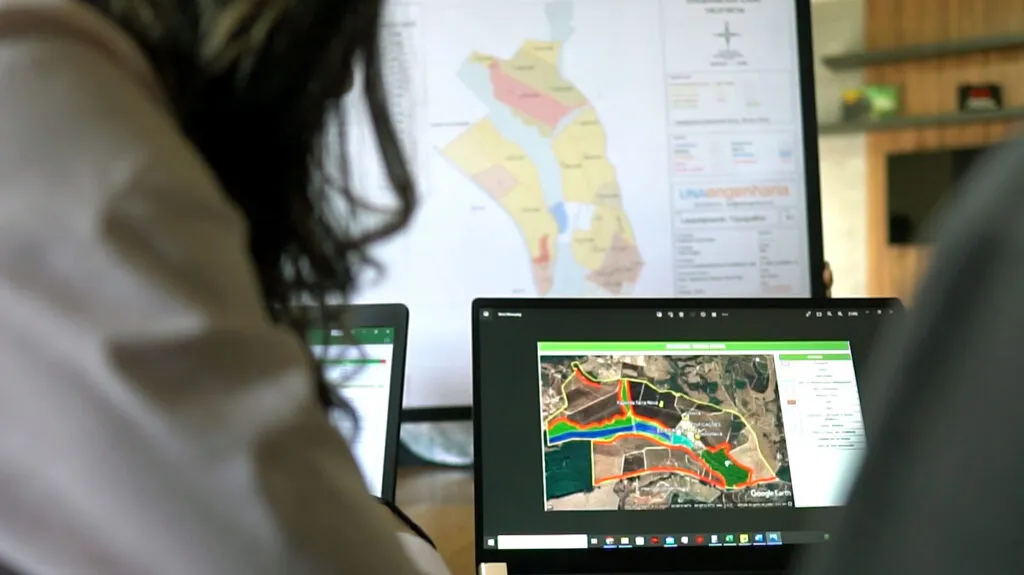Text originally posted on the Rainforest Alliance website
Agriculture is at the center of some of the most pressing issues of our time, from climate change to biodiversity loss. In response, regenerative farming practices are gaining prominence, promoting a new approach to cultivation that goes beyond sustainability – it seeks to restore and revitalize agricultural ecosystems.
The Rainforest Alliance, in collaboration with certified farm group Agrogenius and exporter Bourbon Specialty Coffees, is proud to lead a pioneering regenerative agriculture project in Brazil. This pilot project aims to create a transition model for coffee farms that implement regenerative practices, generating long-term environmental, social and economic benefits.
The Rainforest Alliance has been promoting the implementation of good agricultural practices on coffee plantations in Brazil for years. The concept of regenerative agriculture is part of the management applied on many farms certified by the organization and aims to re-establish ecological balances within the agro-ecosystem, restoring biodiversity, improving soil quality and increasing carbon sequestration capacity.
As demonstrated on the Agrogenius farms participating in this pilot, one of the pillars of regeneration is the soil. Healthy soil, rich in organic matter and microorganisms, not only increases crop productivity, but also acts as a resilience tool in the face of climate change. Practices such as the use of cover crops and the replacement of agrochemicals with bio-inputs are among the regenerative techniques implemented.

The regenerative agriculture project, officially launched in September 2024, includes the creation of indicators to measure the impact of the practices implemented. These indicators range from environmental benefits, such as improving soil characteristics and reducing the use of chemicals, to economic benefits, such as increasing the resilience of participating farms. The expectation is that the farms will be able to balance the costs of transitioning to regenerative practices with the appreciation of their products on the market.
As the market for specialty coffees continues to grow, consumers are increasingly demanding in terms of the origin and environmental impact of the products they consume. Bourbon Specialty Coffees, for example, is at the forefront of this transformation, guiding its partners in adopting sustainable and regenerative practices. With experimental farms such as Fazenda Terra Nova, the company has carried out innovation tests that help boost the quality and sustainability of regenerative coffee.
Regenerative agriculture is, above all, a collaborative approach. The pilot project led by the Rainforest Alliance, Agrogenius and Bourbon is an example of how strategic partnerships can accelerate the transition to more sustainable and regenerative agriculture. During the inauguration event, talks and training sessions were held to introduce the Rainforest Alliance’s regenerative agriculture program to the participating farms, as well as to align field activities and communicate the expected impact over the next few years. The implementation of these practices on Agrogenius farms is proof of the commitment to a more resilient and sustainable agricultural future.
Throughout the project, the data collected on regenerative practices will serve as the basis for reports and communication with the market, demonstrating the potential not only to restore the environment, but also to improve the quality and value of the coffee produced. As regenerative coffee continues to gain ground, we hope that this project is just the beginning of a larger transformation in Brazilian agriculture.
Regenerative agriculture is shaping the future of food and beverage production, and specialty coffee is the epicenter of this transformation. By adopting the Rainforest Alliance’s regenerative agriculture concepts, Agrogenius farms are not only contributing to environmental sustainability, but are also better positioning themselves to meet the growing expectations of consumers and international regulators.
Our goal is clear: to regenerate, restore and create agriculture that not only sustains, but also improves the environment. The road to regeneration is long, but with initiatives like this, we are one step closer to a future in which agriculture is synonymous with environmental and economic prosperity.